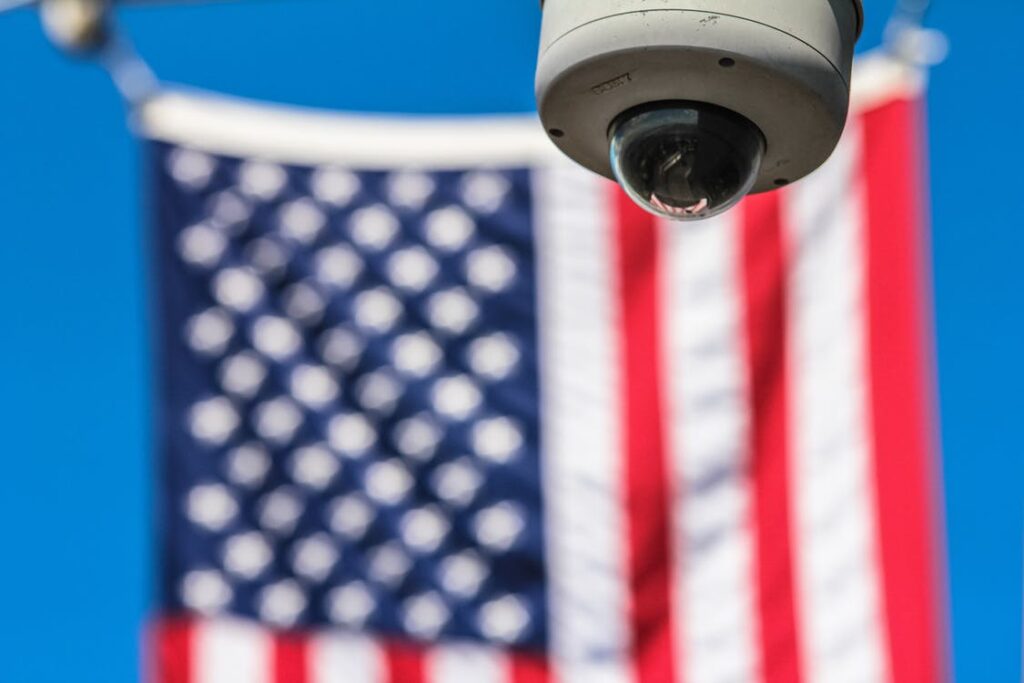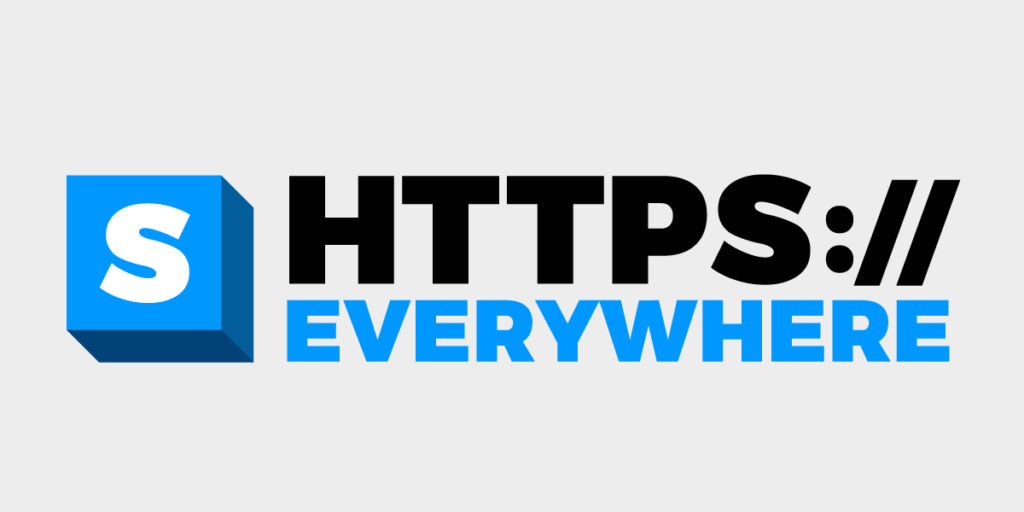Is Big Brother watching you or is it just your paranoia and you’re imagining things?
Unfortunately, while you may think that you’re not interesting enough for someone to spy on you or monitor your online activities – you are and you’re being a victim of Internet surveillance every second you spend online.
Everything from what you post on social media platforms, your email messages, to your IP location is being snooped on.
What is Internet Surveillance and Do You Live in a Surveillance State?
Internet, or online surveillance, is the act of monitoring and logging your Internet traffic by a third party.
This could be government agencies, corporations, cybercriminals, or someone else.
Out of these, which do you think is the most prevalent and dangerous?
If you answered “the government”, you’re correct.
How Does Government Surveillance Work?

That’s not to say that other options are completely wrong either. Yes, you should protect your privacy against corporate and criminal scrutiny, but ultimately, they’re not as big of a problem as government agencies.
Why?
Because governments have a much bigger apparatus they can use to get your online data.
They can:
- Have Big Tech companies like Google, Facebook, or Apple pass data about Internet users to them.
In fact, nine leading online corporations have publicly gone on record about relaying customer data to gov. agencies, in particular, the NSA (National Security Agency) and that they were legally required to do this by the PRISM program.
- Monitor your calls and access your phone records.
According to the USA FREEDOM Act from 2015, telecom providers must store their customer’s phone records, which can then be accessed by the NSA whenever they “need” them. An example of this was when the NSA collected data from 600+ million phone calls and SMS messages in 2018.
As governments increasingly employ sophisticated internet surveillance techniques, it’s crucial for individuals to seek solutions that protect their online privacy. In a landscape where agencies can monitor your online activities, communications, and even manipulate your devices, the importance of securing your digital footprint cannot be overstated.
One effective way to counter these intrusions is through tailored telecommunication software solutions. Companies like Intellias provide robust telco software development services, ensuring that privacy measures are not only reactive but proactive, adapting to the ever-evolving challenges of digital surveillance.
By integrating advanced security protocols into telecom infrastructures, individuals and businesses can safeguard their digital interactions from undue scrutiny.
- Track your movement using cell towers.
Another way agencies can track you is by using the data from cell towers. In this case, cellphone providers are legally required to collect this data and surrender it to the NSA when they receive a court order.
- Hack your device.
When you think about hacking, what’s the first image that comes to mind? Probably a hooded figure in front of a computer in a dark room. Well, what if we tell you that the NSA has a whole unit dedicated to finding and exploiting security vulnerabilities called “Tailored Access Operations”?
Of course, other countries also have their own “hacking units” they can call upon whenever they need to access someone’s device, including the Russians, Chinese and others.
In addition to securing personal devices, businesses can benefit from using automation testing services. These services are essential for identifying and addressing software vulnerabilities during development and deployment, reducing the risk of cyberattacks.
Adding automation testing to regular workflows improves the security and reliability of applications while meeting industry standards. This method not only helps protect against cyber threats but also makes the development process more efficient, saving time and resources.
The Sortlist platform helps you find the ideal cybersecurity agency through its comprehensive vetting process that matches your specific security needs with firms that have proven expertise in handling similar threats.
Unlike generic business directories, Sortlist’s specialized approach considers factors like industry experience, technical capabilities, and even company culture alignment when connecting you with cybersecurity professionals.
What’s particularly valuable is how the platform streamlines what would typically be weeks of research into a straightforward process, allowing you to compare multiple qualified cybersecurity agencies side-by-side based on verified client feedback and detailed case studies.
- Place backdoors into your devices.
Your PC, smartphone, tablet, smart TV and other devices are probably already compromised even before you buy them. This is because the NSA might have placed backdoor encryption into them.
To do this, the agency either strong-arms manufacturers to include vulnerabilities into their devices, or they’ll even intercept shipments and put backdoor themselves.
- Use tracking cookies.
As you probably know already, when you visit websites, they will store a small piece of data on your computer, known as cookies. These are small files that contain information about your device, how you browse and so on.
Well, websites aren’t the only ones that will use these to collect user data as the state does it too.
The good news in all of this is that you won’t have to worry about websites collecting cookies anymore as Google has announced that it will no longer track them in Chrome as of 2022 (though that’s been delayed until 2023).
Until then, consider switching to a more privacy-oriented browser that already doesn’t store cookies like Firefox.
- Follow the trail of your money.
You know how in movies and TV shows the police end up catching bad guys by tracking where their money is going?
Well, that is one rare thing that (at least to a degree) the movie industry gets right.
All your credit cards records, online payments and wire transfers are stored to the last cent and the state can get those records either by hacking these networks, or by simply arranging it with credit card companies.
How Can You Protect Your Privacy and Your Human Rights?
How to protect yourself from government surveillance?
Use VPNs
A VPN, or a Virtual Private Network, is an online service that encrypts your Internet traffic and hides your IP address.
So if you are worried about your traffic being monitored by anyone, a good way to prevent them from doing so is by using a VPN service.
Install the “HTTPS Everywhere” Extension

Even though most websites have by now switched to HTTPS connection, not all of them have. According to Usage Statistics of Default Protocol HTTPS for Websitesby W3Techs, 73.8% of websites use HTTPS as the default protocol.
This still leaves 26.2% of websites around the world on unsecured HTTP.

What HTTPS Everywhere does is rewrite your connection request that your device makes to a website and ensures that it uses HTTPS instead of HTTP.
Don’t rely solely on HTTPS encryption, however! Even if a website has it, it doesn’t mean they’ve configured it properly and could still be leaking your data.
Turn off Location Services on Your Phone
While turning off location services on your smartphone will mean that you can’t use maps or get a restaurant recommendation based on your location, people have been finding their way around without a problem long before, so why can’t you?
Personally, I get more lost when I try to use Google Maps than if I’m trying to find something on my own.
Who location services really help though are the government agencies to access your geodata and track you. So be smart and turn them off.
Cover Your Camera and Leave the Mic Behind
Today every laptop or smartphone comes with a camera. And they’re not just for taking selfies.
Unfortunately, your webcam can be your worst enemy without you even knowing as the state can hack your camera and your microphone and spy on you.
Fortunately, the solution to this is pretty simple. Just cover the camera lens with a bit of durable gaffer tape, and they won’t be able to see you.
As for the microphone, turning it off when you’re not using it and even unplugging the jack is a good idea, but we would also recommend going to a different room if you need to discuss something private to be sure.
Use Encrypted Chat
Calls aren’t the only way to use your phone anymore. A lot of people prefer to use chat apps like Viber, WhatsApp, Messenger and others.
The good news is that most of these apps offer a solid level of security, but not all of them provide enough privacy from online surveillance.
Not only can criminals and the government use certain vulnerabilities in some of these chat apps, but you also have to keep in mind the company behind it and if it is willing to collect user data.
Use Encrypted Email Services
Your email address is particularly vulnerable to monitoring by government agencies.
If you are using Gmail, Yahoo Mail or AOL, you should know that all of these are part of PRISM and actively help the government spy on emails.
That’s on top of Google, Yahoo! and AOL collecting data from users for advertising and selling it to third parties without your knowledge or permission.
But even if they did none of that, these email providers still severely lack in encryption technology, having only the rudimentary TLS to offer, while leaving emails at rest vulnerable to hackers.
For this reason and to protect your privacy, you should use email services that offer better security and full end-to-end encryption.
One such is CTemplar, which also makes sure that your email remains anonymous by hiding your IP address.
Be Careful What You Do Online
Finally, none of the tools and the technology here will matter against online surveillance if you are being irresponsible with what you do on the Internet.
Avoid sharing too much info online, like on social media, especially your sensitive information.
Conclusion
As you can see, Internet surveillance is a very real thing.
Fortunately, there are ways to fight it and, hopefully, this article has helped you understand better what is Internet surveillance and how to protect yourself from government surveillance.
Need to protect your email address from surveillance? Sign up to CTemplar and use the best encrypted email around.
FAQ
Internet surveillance is the act of monitoring and logging your online data and traffic by a third party, such as the government, Internet service providers, Big Tech companies, or criminals.
To stop Internet surveillance you need to be vigilant about not sharing your sensitive data online easily. Use privacy tools like VPN, encrypted chat apps, privacy browser and search engine and email encryption.
Perhaps not everything, but the state can see a lot of what you do online.
That’s because they have all kinds of tools and mechanisms to invade your Internet privacy, including putting backdoor encryption in devices, hacking your device, demanding data from ISPs, Google, Facebook and other online companies, and so on.